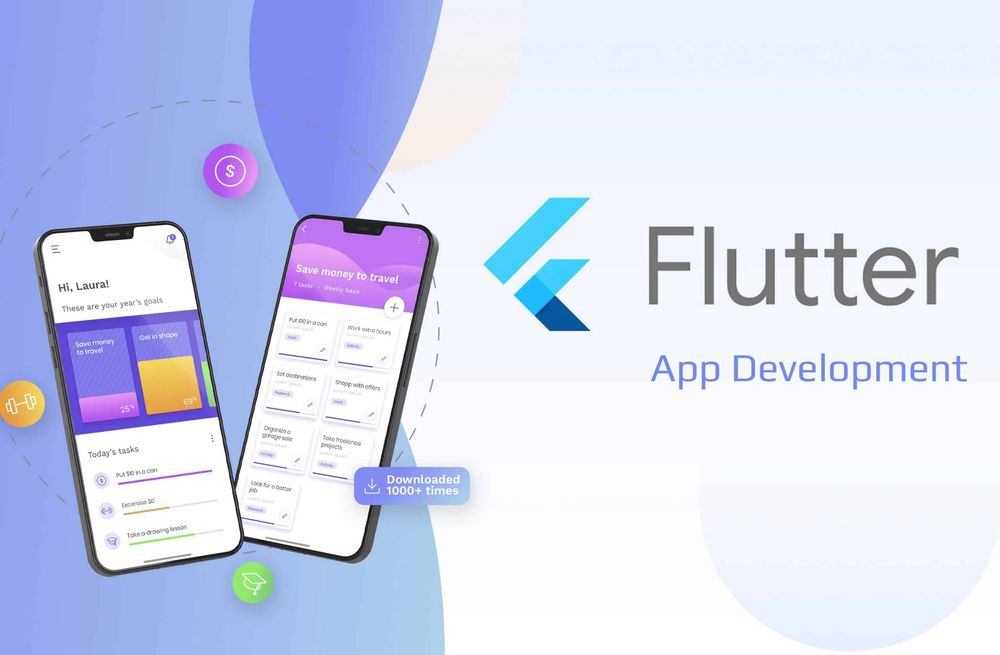Flutter: Revolutionizing Cross-Platform App Development
- common.posted-on 27/03/2025

What is Flutter?
Flutter is an open-source UI software development kit (SDK) created by Google. It allows developers to build natively compiled applications for mobile (iOS, Android), web, and desktop (Windows, Mac, Linux) from a single codebase. Flutter combines high performance with flexibility and ease of use, making it a popular choice among developers worldwide.
Unlike other cross-platform frameworks that rely on web-based components, Flutter uses Dart, Google’s programming language, and a high-performance rendering engine to compile code directly to native machine code. This results in faster performance and smoother user experiences.
Why Choose Flutter? Key Advantages
Single Codebase for Multiple Platforms
One of the most significant benefits of Flutter is its ability to create apps for different platforms with just one codebase. Instead of writing separate code for iOS and Android, developers can use Flutter’s framework to build apps that work seamlessly on both. This drastically reduces development time and effort, allowing teams to release apps faster while ensuring consistency across platforms.
Rich and Customizable UI
Flutter offers a wide range of pre-designed widgets that make it easier to create beautiful, intuitive interfaces. These widgets are customizable, giving developers complete control over how the app looks and feels. Whether you want a platform-specific design or a unique, custom user interface, Flutter provides the flexibility to meet those needs without sacrificing performance.
For example, Flutter allows you to create a highly polished UI with smooth animations and transitions, which can rival the native experience. This makes it perfect for businesses looking to provide users with a visually engaging, responsive app.
Faster Development with Hot Reload
Flutter’s hot reload feature allows developers to see changes to the code instantly without restarting the entire application. This dramatically speeds up the development process by enabling quick iterations. Developers can experiment with new features, fix bugs, and optimize their code in real-time without disrupting the development flow. This saves time, reduces frustration, and enhances productivity.
Performance Close to Native
Flutter delivers high-performance apps because it is compiled directly to native machine code, skipping the performance lags associated with intermediate layers, such as those in web-based frameworks. Its graphics engine, Skia, ensures smooth rendering, making animations fluid and interactions responsive. Whether it's a simple mobile app or a more complex application requiring high-speed operations, Flutter provides near-native performance on both iOS and Android devices.
Strong Community and Growing Ecosystem
Since its launch, Flutter has gained widespread popularity, which has fostered a robust and growing community of developers. This means there is a wealth of resources, plugins, and libraries available to help you overcome common development challenges. Moreover, because Flutter is backed by Google, it receives regular updates, ensuring it remains a leading technology in the cross-platform development space.
Use Cases: When Should You Use Flutter?
Flutter is an ideal choice for many scenarios, especially when developing apps that require high performance, beautiful UIs, or the need to deploy across multiple platforms. Here are some common use cases:
MVPs (Minimum Viable Products): For startups or companies wanting to launch their product quickly on both iOS and Android, Flutter allows for the fast development of MVPs. Its single codebase means you can release the product on both platforms simultaneously, getting your idea to market faster and at a lower cost.
Custom UI-heavy Apps: If your app relies on providing users with a custom, visually-rich interface, Flutter’s flexibility and wide range of customizable widgets make it a perfect choice. Whether you need a custom layout, intricate animations, or unique interactive elements, Flutter gives you the tools to create engaging, visually stunning experiences.
E-commerce Platforms: With e-commerce apps, performance and smooth navigation are critical. Flutter’s ability to deliver near-native performance, along with its rapid development features, makes it an excellent choice for building responsive, scalable e-commerce platforms that work well on any device.
Social Media Apps: Flutter’s capacity to handle complex interactions, fast animations, and real-time data updates make it ideal for social media applications. Companies can leverage Flutter’s cross-platform capabilities to ensure consistency across both Android and iOS versions, with features like smooth scrolling, media sharing, and notifications.
Enterprise Apps: Enterprises often need apps that work seamlessly across various platforms, from mobile devices to desktops. Flutter’s multi-platform capabilities, combined with robust performance and scalability, allow businesses to build enterprise-level applications that are consistent and efficient on every device.
Examples of Companies Using Flutter
Several well-known companies have adopted Flutter to build their apps:
- Google Ads: Google’s own Ads mobile app is built with Flutter, showcasing the framework’s reliability and power.
- Alibaba: The Chinese e-commerce giant uses Flutter for some parts of its mobile app, benefiting from its cross-platform capabilities and ease of use.
- Reflectly: This AI-powered personal journaling app uses Flutter to provide users with a beautifully designed and responsive experience across both Android and iOS.
Conclusion: Why Flutter is the Future of App Development
Flutter has proven itself as one of the most versatile and powerful frameworks for cross-platform development. Its ability to build fast, high-performing apps with a single codebase allows businesses to save time, reduce costs, and deliver consistent user experiences across multiple platforms.
From startups building their first MVP to established companies looking to streamline app development, Flutter provides the tools and flexibility needed to succeed in today’s competitive app market. With its growing ecosystem, strong community, and continued support from Google, Flutter is positioned to remain a dominant player in cross-platform app development for years to come.
